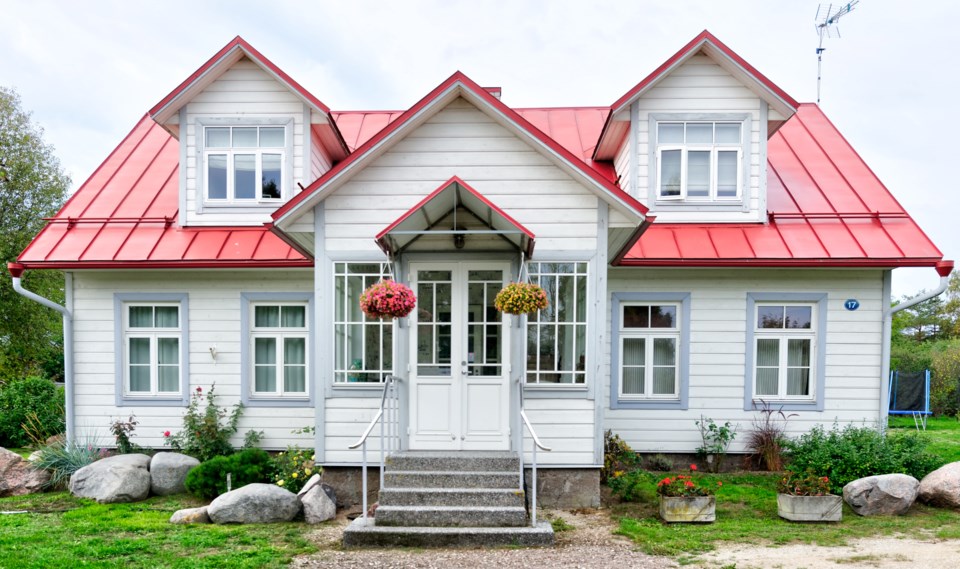The Longmont Leader accepts contributions, photos, and op-eds for publication from community members, business leaders and public officials on local topics. Publication will be at the discretion of the editor and published opinions do not represent the views of The Longmont Leader or its staff. To submit a contribution, email [email protected].
Hello, Longmont! Welcome to the first edition of an experimental new column about money, happiness and better living. Although I have lived here in old town for 15 years and been writing about personal finance for the past decade at a blog called Mr. Money Mustache, this is my first time taking it to the local streets, to see if I can be helpful to you.
I’m 45 years old at the moment, but I have been “retired” since age 30, thanks to the financial and lifestyle principles I will be teaching in this column.
This doesn’t mean I completely stopped working, it just means that I haven’t needed to work for money since then, and I’ve been able to decide how to spend my own time. I’ve had more time to share parenting of my son, learn new things, and start interesting new small, local businesses that bring more satisfaction than my old corporate job ever could.
We’ll have more time to talk about that later, but for now let’s just get into what this column is really about: your money and life questions. The idea is that you send in questions to the Longmont Leader at [email protected] and I’ll answer a few of them each week. Over time, we should be able to cover a nice broad patch of ground, and hopefully spread these useful principles throughout Longmont, just as my blog has managed to reach about 30 million people over its own lifetime.
Question from John: I am recently divorced and facing the impacts of COVID and a slow housing market, but I want to buy a home. Do you have some tips to prepare myself financially for home ownership while I wait for a house to come on the market?
Absolutely! Longmont is a very tight seller’s market right now, which is great if you are selling, but not much fun if you are a buyer. Still, I have successfully bought and sold quite a few here in town over the years and quite a few friends are real estate agents, so I have noticed a few things that really help.
-
Save like crazy — the less you have to borrow, the more options you have. Just for fun, consider the ultimate home-buying situation, which is to have the full purchase price in cash. In this scenario, you can control the schedule and there is no risk of appraisal or financing hangups. A seller in a hot market like ours will usually choose a cash offer above all other ones, because they know cash buyers are reliable.
The next best choice is to have a full 20% down payment, so you have a conforming loan with no requirement for PMI. You’ll also have a wider selection of lenders willing to work with you and probably a lower interest rate as well.
Even if you aren’t prepared to hit that 20%, every dollar you have in reserve at the time of home shopping expands your options and reduces your stress. So, as you prepare to shop, it helps to cut every expense you can in the meantime: sell off your unused toys, switch to a less expensive car, shop less, delay purchases and buy any remaining things from Craigslist, Facebook Marketplace or thrift shops, wine and dine at home rather than at restaurants, shop around for car insurance to cut costs, and chop out unnecessary subscriptions like cable TV, etc.
-
Think about the location — If you buy a house in a car-dependent area with a long commute to work, your driving costs (which are four to eight times higher than the cost of gas alone), will go up dramatically. So, in many cases it’s worth paying more or choosing to live in a smaller house, in order to live closer to the things you do most often. The unexpected benefit is that living centrally is much better for our health too — because we walk and bike more often and are more likely to become part of a close-knit group of local friends.
-
Consider clever house-hacking strategies — If you can find a home with a rentable apartment (even if it’s just a nice finished basement), you can often collect enough rent to offset a large portion of the monthly mortgage payment. Some people even go as far as to live in the apartment themselves while renting out the main house, allowing themselves to live for free. I call this the “Mustachian Inversion” — and while it’s an unconventional step it can result in over $200,000 of increased wealth over a 10-year period, compared to occupying a house by yourself. Check out a book called “The House Hacking Strategy” by Colorado’s own Craig Curelop for an inspiring story on this technique.
This column is intended for informational and educational purposes only and should not be construed as professional financial advice for your individual situation. Please consult with a financial professional before making any serious financial decisions.



